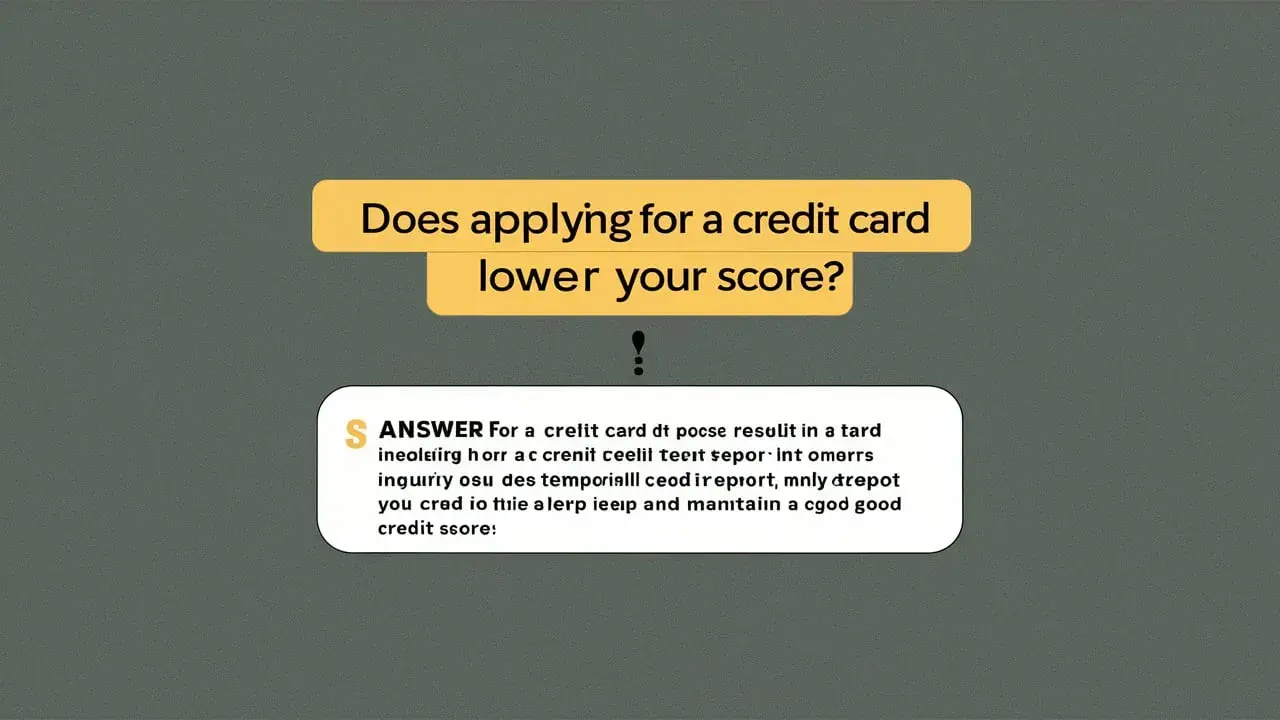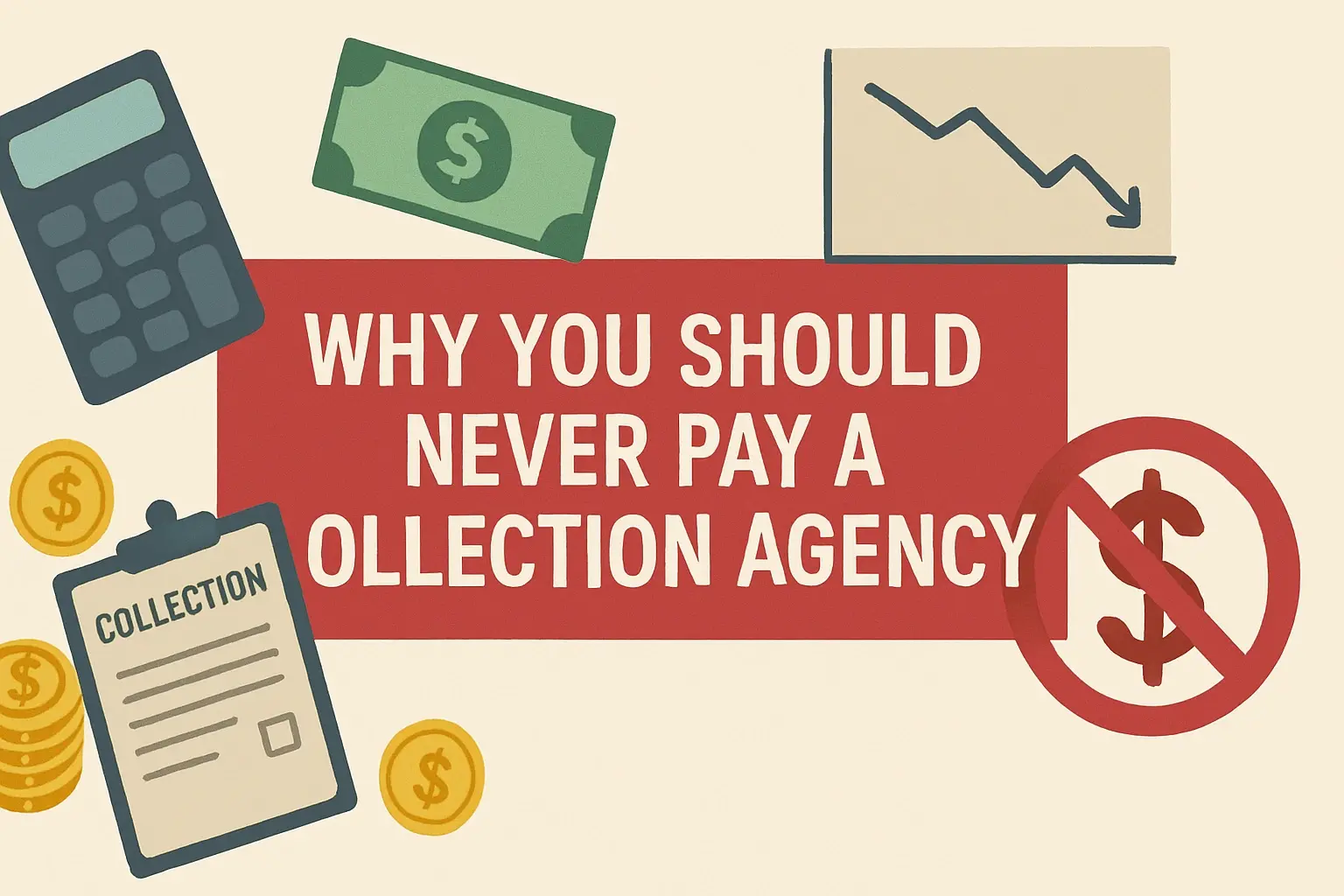-
Posted on: 21 Dec 2022

-
Published: October 26, 2023 | By: Credit Repair Ease Team
Introduction: Stop Paying Unnecessary Credit Card Interest
Credit cards can be incredibly useful tools for building credit, earning rewards, and managing expenses. However, the convenience of credit cards often comes with a price: interest charges. Paying interest on your credit card balances can quickly erode your finances, making it harder to save, invest, and achieve your financial goals. At Credit Repair Ease, we understand the importance of managing credit responsibly. That's why we've compiled this guide to help you understand how credit card interest works and, more importantly, how to avoid it.
This article outlines four proven strategies to minimize or eliminate credit card interest, enabling you to keep more money in your pocket and build a stronger financial future. Whether you're struggling with existing credit card debt or simply want to avoid future interest charges, these tips will provide valuable insights and practical solutions.
Understanding Credit Card Interest: A Quick Overview
Before diving into the strategies for avoiding interest, it's crucial to understand how credit card interest, also known as the Annual Percentage Rate (APR), is calculated and applied.
How APR Works
The APR represents the yearly interest rate you'll be charged on your outstanding credit card balance if you don't pay it off in full each month. This rate can vary significantly depending on your creditworthiness, the type of credit card you have, and the lender's policies.
The Grace Period
Most credit cards offer a grace period, which is a period of time, typically 21-30 days, between the end of your billing cycle and the date your payment is due. If you pay your balance in full by the due date, you won't be charged interest on your purchases during that billing cycle. This is the key to avoiding interest altogether!
How Interest is Calculated
If you carry a balance from month to month, the interest is calculated daily or monthly based on your average daily balance. This means that the higher your balance and the longer you carry it, the more interest you'll pay.
Understanding these basics is the first step towards taking control of your credit card finances and minimizing interest charges.
4 Effective Ways to Avoid Credit Card Interest
Now, let's explore the four key strategies you can implement to avoid paying credit card interest:
1. Pay Your Balance in Full Every Month
This is the simplest and most effective way to avoid credit card interest. By paying your statement balance in full by the due date each month, you can take advantage of the grace period and avoid accruing any interest charges. Think of your credit card as a debit card – only spend what you can afford to pay back immediately.
Tips for Paying Your Balance in Full:
- Track Your Spending: Use a budgeting app, spreadsheet, or simply monitor your credit card statements regularly to keep track of your spending.
- Set Up Payment Reminders: Enable email or text message reminders to ensure you don't miss your payment due date.
- Automate Payments: Consider setting up automatic payments for your full statement balance each month. This ensures you never miss a payment and avoid interest charges.
- Avoid Overspending: Be mindful of your spending habits and avoid impulse purchases. Only charge what you can realistically afford to pay off by the end of the billing cycle.
2. Utilize 0% APR Balance Transfer Cards
If you're carrying a balance on a high-interest credit card, a 0% APR balance transfer card can be a game-changer. These cards offer an introductory period, typically 6-21 months, during which you won't be charged any interest on the balance transferred from your existing credit card.
How Balance Transfers Work:
- Apply for a Balance Transfer Card: Research and apply for a credit card offering a 0% introductory APR for balance transfers. Compare offers carefully, paying attention to the length of the introductory period, the balance transfer fee (typically 3-5% of the transferred balance), and the APR after the introductory period ends.
- Request a Balance Transfer: Once approved, request a balance transfer from your high-interest credit card to the new 0% APR card.
- Pay Down the Balance: During the introductory period, focus on paying down the transferred balance as much as possible. Create a budget and allocate a specific amount each month to debt repayment.
- Beware of the End Date: Keep track of when the introductory period ends. If you haven't paid off the full balance by then, the standard APR will apply, which can be significantly higher.
Potential Drawbacks of Balance Transfers:
- Balance Transfer Fees: These fees can eat into the savings you achieve from the 0% APR. Factor them into your calculations to determine if the transfer is truly beneficial.
- Credit Score Impact: Applying for a new credit card can temporarily lower your credit score.
- Spending on the Old Card: Avoid using the credit card from which you transferred the balance, as this could lead to accumulating more debt.
3. Take Advantage of 0% APR Purchase Cards
Similar to balance transfer cards, some credit cards offer 0% introductory APRs on purchases. This can be a smart option if you have a large upcoming expense, such as furniture, appliances, or home renovations. You can make the purchase on the card and then pay it off interest-free over the introductory period.
Important Considerations:
- Plan Your Repayment: Before making the purchase, calculate how much you'll need to pay each month to pay off the balance before the introductory period ends.
- Avoid Overspending: Don't be tempted to spend more than you can afford just because you have a 0% APR.
- Read the Fine Print: Understand the terms and conditions of the card, including the APR after the introductory period ends.
4. Negotiate a Lower Interest Rate
Don't underestimate the power of negotiation! If you've been a loyal customer with a good payment history, you may be able to negotiate a lower interest rate on your existing credit card. A simple phone call to your credit card issuer could save you a significant amount of money in interest charges.
How to Negotiate a Lower Interest Rate:
- Research Average APRs: Before calling, research the average APR for similar credit cards to understand what a reasonable rate would be.
- Highlight Your Good Payment History: Emphasize your consistent on-time payments and long-standing relationship with the company.
- Mention Competitor Offers: Let them know that you've received offers from other credit card companies with lower APRs.
- Be Polite and Persistent: Maintain a polite and professional tone throughout the conversation. If the first representative denies your request, try calling again and speaking to someone else.
Even a small reduction in your APR can make a big difference in the amount of interest you pay over time. It's worth a try!
Additional Tips for Responsible Credit Card Use
Beyond the four core strategies, here are some additional tips to help you manage your credit cards responsibly and avoid unnecessary interest charges:
- Choose the Right Credit Card: Select a credit card that aligns with your spending habits and financial goals. Consider factors such as rewards programs, fees, and interest rates.
- Monitor Your Credit Report: Regularly check your credit report for errors and signs of identity theft. You can obtain a free copy of your credit report from each of the three major credit bureaus (Equifax, Experian, and TransUnion) once a year at AnnualCreditReport.com.
- Keep Your Credit Utilization Low: Credit utilization, which is the amount of credit you're using compared to your total credit limit, is a significant factor in your credit score. Aim to keep your credit utilization below 30%.
- Avoid Cash Advances: Cash advances typically come with high interest rates and fees, and they don't usually have a grace period. Avoid using your credit card for cash advances unless it's an absolute emergency.
- Read Your Credit Card Agreement: Familiarize yourself with the terms and conditions of your credit card agreement, including the APR, fees, grace period, and other important details.
Conclusion: Take Control of Your Credit Card Finances
By understanding how credit card interest works and implementing the strategies outlined in this guide, you can significantly reduce or even eliminate interest charges, saving you money and improving your overall financial health. Remember, responsible credit card use is about more than just avoiding interest; it's about building good credit, managing your finances effectively, and achieving your financial goals.
At Credit Repair Ease, we're committed to helping you achieve financial freedom. If you're struggling with credit card debt or need assistance with credit repair, contact us today for a free consultation. We can help you develop a personalized plan to improve your credit score and get back on track.
Don't let credit card interest hold you back any longer. Take control of your finances and start building a brighter financial future today!











